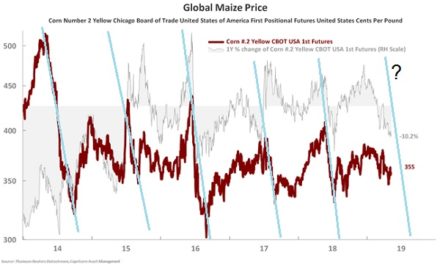
A central bank accountant has the power to suspend provisions in the Bank of Namibia Act

52 Submission and publication of accounts and reports
(1) The Bank shall submit to the Minister within three months after the close of each financial year-
(a) a copy of the Bank’s annual accounts certified by the auditors;
(b) a report of the Bank’s operations and affairs during that year; and
(c) a report on the state of the economy.
(2) The Bank shall, as soon as possible after the last business day of each month, but in any event within 15 business days, prepare and submit to the Minister a return of the Banks’ assets and liabilities as at the close of business on that day.
(3) The copy of the accounts and the report referred to in subsection (1)(a) and the return referred to in subsection (2) shall be signed by the Governor or the Deputy Governor and the chief financial officer of the Bank.
(4)(a) The Bank shall cause the accounts, reports and returns referred to in subsections (1) and (2) to be published in such manner as the Minister may approve.
(Excerpt from the Bank of Namibia Act (15 of 1997) as amended (2011). Part 8, Clause 52.)
Local bank liquidity turned positive this week Thursday with a paltry N$36 million after having been negative, sometimes excessively, for nine business days. It has also been negative on a few days in the first half of January.
Repos also moderated slightly but remained elevated far above historical values. All in all, as I reported earlier this month, there is still about N$1.5 billion that evaporated from bank liquidity, and that is still unaccounted for.
I am not that concerned about where the money went, although I had a few banking people calling me, asking me whether they should be concerned. At that point, as now, all I could state with any measure of certainty, was that the statistics reflect the symptom but do not reveal the cause.
I spoke to several people in three of the four large commercial banks (Nedbank was excluded) and none could say for sure why bank liquidity has tanked so severely. Following an earlier lead that it may have gone to the government’s treasury as tax payments, I contacted the Bank of Namibia.
I wanted to know when the running balance sheet that they publish every month, will be released. This statement of the central bank’s assets and liabilities, MUST be published monthly. It is a statutory requirement. (See Clause 52 (2) above).
It must also be published in a manner approved by the Minister of Finance and seeing that it has been published on the bank’s website since June 2010, I think I am safe to assume that the website is the “approved manner.” Remember, the Bank of Namibia Act was promulgated before the internet. In fact, there is not a single reference to electronic or digital publishing in all 23 pages comprising the act and its amendments.
So when I started hunting for the December 2018 balance sheet, I thought it would be a straightforward affair just to get an indication of when it will be published.
This process struck me dumbfounded. My first request was met by a polite email telling me that person does not work with the balance sheet, I have to contact someone else.
Someone else turned out to be two individuals, both of whom I duly contacted and both of whom completely ignored me.
Eventually I traced another person through the bank’s website who was polite enough to send an instruction to yet another person that the requested balance sheet must be forwarded to me.
This was not a wishywashy search for some state finance secrets, it was part of my quest to determine where the bank liquidity has evaporated to. Since bank liquidity is a zero sum system, if it disappeared from the commercial banks, and if it was paid to the government, it must show up in their figures as captured by the Bank of Namibia.
On Thursday, I was completely flabbergasted. A Bank of Namibia accountant informed me that the December 2018 balance sheet will not be published until the release of the bank’s audited financial statements.
As you can see from the excerpt above, they have three months to submit this to the Minister, and elsewhere the act says he must present it to cabinet, but nothing about making it public.
Does this mean we have to wait three months before we can figure out why bank liquidity tanked? Does it further mean that an accountant working for the central bank has the discretionary power to suspend a clause in a Namibian law?
The short and the long is: if the Bank of Namibia does not publish the December 2018 balance sheet, the institution is in breach of the law, unless the minister has changed the “approved manner” for publication which was not the case, at least until the middle of December when the November balance sheet was published.
The government can save a lot of money if its fires the whole Judiciary, and relegates the final say over the law to the army of accountants working for it in all the ministries. Maybe this is one of the reasons why government finances are in shambles.












































